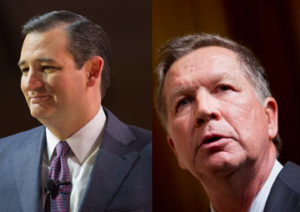Disco Queen and Go-Go King
The soundtrack of my youth is fading. That's hardly an original observation, I realize, but self-indulgence is a columnist's inalienable right and music has unique power to summon unbidden waves of nostalgia.The soundtrack of my youth is fading. That’s hardly an original observation, I realize, but self-indulgence is a columnist’s inalienable right and music has unique power to summon unbidden waves of nostalgia. I’ll spend the rest of the day listening to the “Queen of Disco” and the “Godfather of Go-Go,” and saying goodbye.
Donna Summer, who died Thursday, was the undisputed monarch of a musical genre that I tried my best to hate. Disco had none of the spontaneity and rough edges of rock ‘n’ roll, none of the rawness and authenticity of rhythm and blues, and yet it emerged from those sources like some sort of genetic anomaly. Disco was slick, polished, relentless. Intellectually, it was boring.
Viscerally, it was irresistible. To be on a dance floor in the late 1970s, before the mirrored ball became a cliche, was to be assaulted by thumping bass and screaming synthesizers until you surrendered and let the music carry you along. For all its space-age sheen, disco was all about music’s most ancient and primal element, the beat. It was about becoming what diva Grace Jones called a “slave to the rhythm.” Harmony and melody, for most artists, were afterthoughts.
But not for Donna Summer. Only a handful of vocalists had the pipes to sing with expressiveness, subtlety and control above the clamorous frenzy of a disco groove, and Summer was one of them. Her voice had what seemed like effortless power. You got the sense that if she wanted to crank it up, she could blow any band right off the stage.
And she had something to say. Songs such as “Bad Girls,” “Hot Stuff” and “She Works Hard for the Money” were anthems to female empowerment and sexual liberation. Whether she was playing the role of a saucy streetwalker, a club-hopping adventuress or an Everywoman shouldering the burdens of the world, she was always the protagonist, never the victim. “When I’m bad,” she famously sang, “I’m so, so bad.”
Unlike so many things from the disco era, Summer’s songs have endured. She released her last album in 2008, performed on “American Idol” that year and reportedly had been working on a new record before her final illness. She died of cancer at 63.
On Wednesday, we lost another seminal figure in popular music, the guitarist and bandleader Chuck Brown.
Around the world, Brown was perhaps best known for his 1979 No. 1 hit, “Bustin’ Loose.” Careful listeners might also be aware that he is one of the artists most frequently sampled by dance-music and hip-hop producers; snippets of Brown’s work can be heard, for example, on tracks by Eric B. & Rakim and in the rapper Nelly’s mega-hit “Hot in Herre.”
Here in Washington, D.C., however, Brown was known simply as the Godfather. He is credited as the inventor of the unique local sound known as go-go, a brand of syncopated funk distinguished by the central role given to percussion — congas, cowbells, rototoms, wooden boxes, plastic buckets, anything that goes bang or boom when you hit it. It’s hard to describe what distinguishes a go-go beat, but you know one if you hear one. It’s almost as if the drums are singing the melody and everything else is just along for the ride.
If you have no idea what I’m talking about, you’re not from around here. Go-go is a regional sound that never quite broke out into the mainstream; bands such as Rare Essence and Experience Unlimited, legends among the cognoscenti, draw a complete blank outside the Beltway. For me, the intensely local nature of go-go is a reminder that Washington is an actual place, not a political abstraction.
One important element in the texture of life in the nation’s capital was Chuck Brown. He appeared in television ads for well-known local institutions, such as the D.C. Lottery — and, I should add, The Washington Post. If you went to a baseball game and one of the Nationals hit a home run, Brown’s “Bustin’ Loose” was the celebration song. A city block near Howard University was named Chuck Brown Way.
He died at 75 after a battle with pneumonia. Wednesday night, as news of his passing spread, a large crowd gathered on Chuck Brown Way to remember a man whose talent, exuberance and generosity of spirit will be missed.
There is only one way to celebrate the legacy of these two legends: Get up and dance.
Eugene Robinson’s e-mail address is eugenerobinson(at)washpost.com.
© 2012, Washington Post Writers Group
Your support matters…Independent journalism is under threat and overshadowed by heavily funded mainstream media.
You can help level the playing field. Become a member.
Your tax-deductible contribution keeps us digging beneath the headlines to give you thought-provoking, investigative reporting and analysis that unearths what's really happening- without compromise.
Give today to support our courageous, independent journalists.





You need to be a supporter to comment.
There are currently no responses to this article.
Be the first to respond.